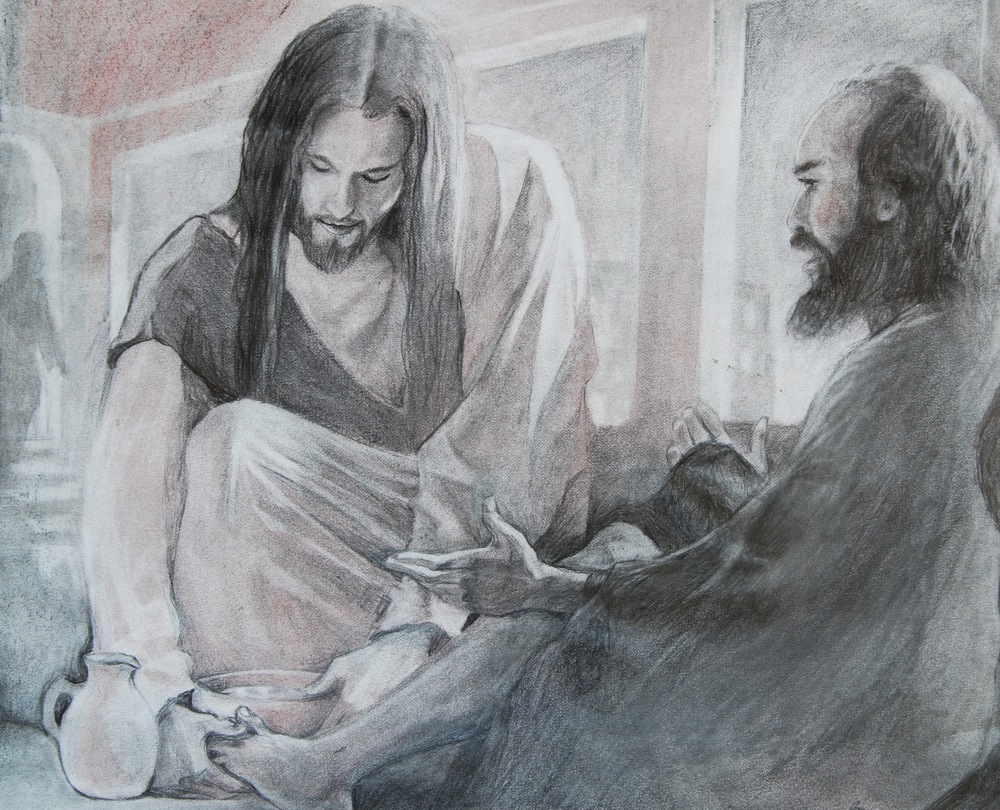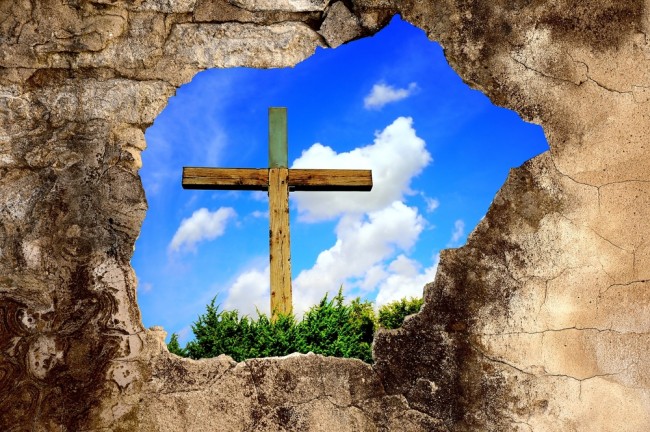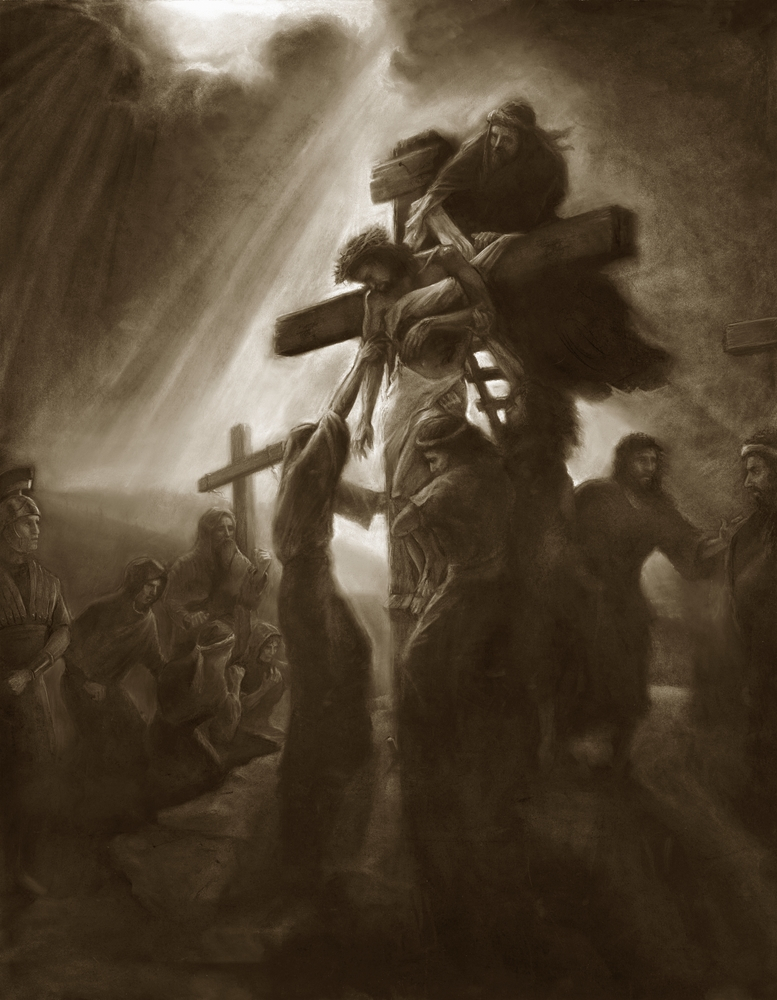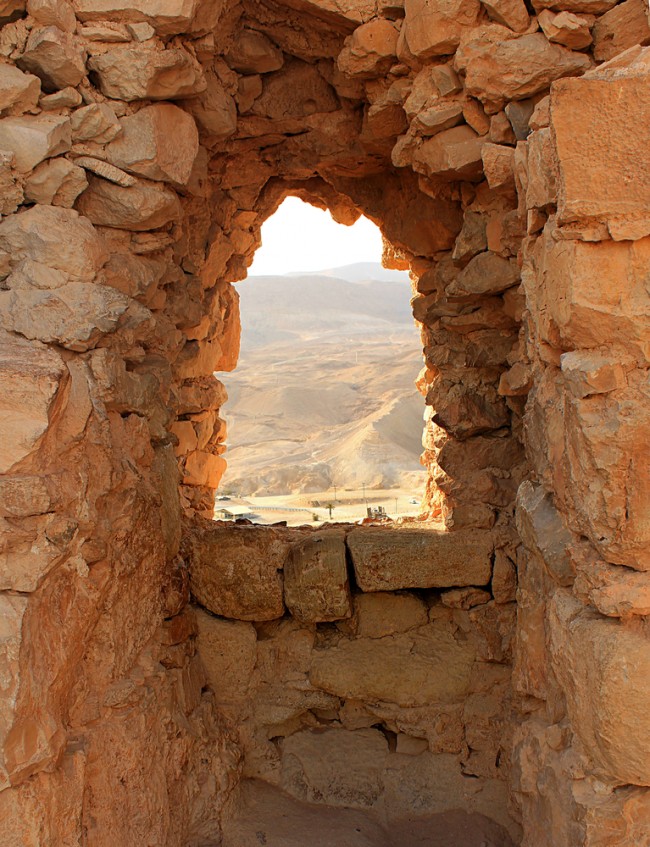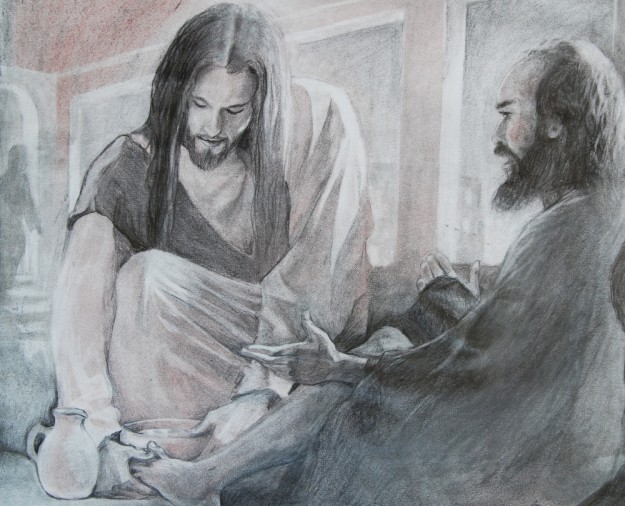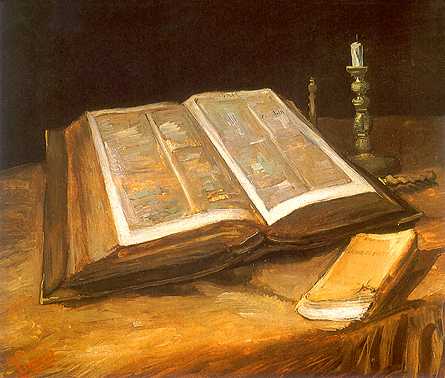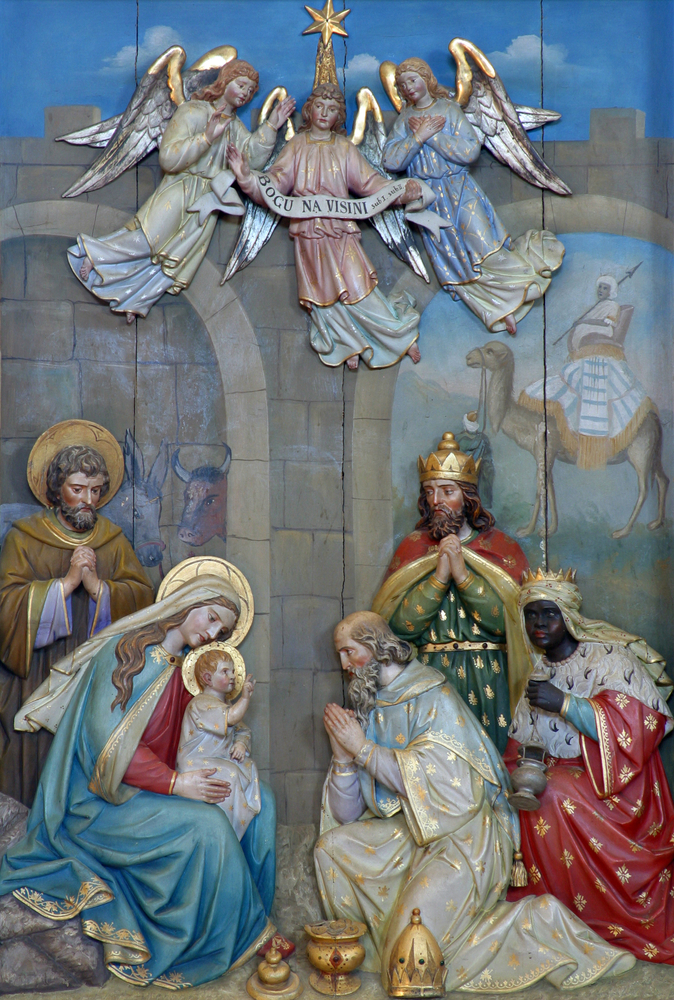Progressive Christianity asserts that God is present in each one of us. God is not far off but moves within each of our lives, providing energy and possibility; God’s presence in us and not imperfection is our deepest nature. In contrast to sin-based theologies, accenting original sin and human depravity, progressive Christianity affirms original blessing and the inherent divinity of each creature.
Jesus called on people to change. Not just a little, but dramatically. The ‘kingdom of God’ is the term Jesus used to express his vision of a profound transformation of human beings and human institutions—social, political, economic and religious—to fully express the character and nature of God—a God of love. To accomplish this vision, Jesus worked toward the creation of a new kind of community dedicated to values of compassion, generosity, peace, and justice. He was creating a movement for change, a people engaged in a vast conspiracy of love.
When I am struggling, maybe with grief, or trying to sort out something difficult in my life, I often go to a special spot and quietly wait for the new sun to appear. It always makes a significant difference in my being when I do this. My load feels lighter. My fears often dissolve. My grief can be transformed into hope. Over the years I have thought of all kinds of metaphors that may explain this phenomenon. I am reminded that it is a new dawn, or a new day. No matter how painful or dark my situation seems to be, as that sun comes over the horizon everything in my life begins to look and feel different. The new sun symbolizes a new beginning for me. I feel I have gained a new perspective. My internal darkness has dissolved into new light and I am comforted.
The church as we know it came about when one group of believers was opposed by a dissenting group. Then it became necessary for each group to define their concepts of Christianity and to label all others heretics.
This past year, at my congregation on Cape Cod, we began to celebrate the seasons of the year as part of our affirmation
For Christians grace is God’s gift of pardon. According to William Barclay the Greek word for grace was originally a military term. When an emperor came to the throne or celebrated a birthday, he would give his troops a donatirim (donation), which was a free gift that they had not earned; it was given out of the goodness of the emperor’s heart. This idea was picked up by the Christian scripture writers when they wrote about the grace of God. Grace is something that is unearned and undeserved – unmerited pardon.
For many Christians, a supernatural theistic God is a daily reality in their lives, but for many others, this kind of God is simply not there. They long to feel God’s presence and God’s love, but instead they experience emptiness and isolation. They worship God in church, but find that God is not present in the sanctuary. They pray fervently to God in private moments, but realize that their prayers often go unanswered. In the end, there is only silence.2 The biblical character of Job cried out to God in despair, “I cry to you God, but you do not answer. I stand before you, and you don’t even bother to look.”3
Can we actually believe that because Eve persuaded Adam to eat a forbidden apple the entire human race is doomed to hell? Can we truly believe that for several thousand years there was no chance for any human to be saved, even though none of them had anything to do with Adam and Eve’s disobedience in the Garden? Isn’t it ludicrous that a child born today is doomed because Adam and Eve disobeyed God? That creation/damnation scheme sounds more like devil-worship than God-worship.
To believe, or give assent to, a fixed set of beliefs, such as, “I believe in God the father almighty....,” or the inerrency of the Bible is to cut off the possibility of growth. If you have all the answers you are not open to new thoughts or questions. Communicating with a fundamentalist is very difficult, and we are all fundamentalist in a variety of ways. But Leonard Cohen reminds us that “there is a crack in everything, that’s where the light comes in.”
The dry bones raised by Ezekiel are a metaphor for those who died in the service of God’s justice: those who died working to restore God’s distributive justice-compassion to God’s Earth, and who themselves never saw the transformation. The army of dry bones is an army exiled from justice. Fairness demands that if Jesus was resurrected into an Earth transformed into God’s realm of justice-compassion, then all the other martyrs who died too soon should also be raised with him. “But in fact,” Paul writes in 1 Corinthians 15:20, “Christ has been raised from the dead, the first fruits of those who have died.” It is the Christ – the transformed and transfigured post-Easter Jesus – who has started that general resurrection, which restores justice-compassion to a transformed Earth. The transformation has begun with Jesus, and continues with you and me – IF we sign on to the program.
We need to subject the resurrection stories of the New Testament to the same critical analysis as we did the crucifixion. So let us examine Paul’s writings and the gospels in an attempt to discover what the event we call Easter really was.
The church sign can be easily read by anyone driving by: “You can’t be a devoted follower of Jesus unless you are part of a local church.” Does the church that posts this sign not trust the people with Jesus’s message? What is the meaning of “incarnation” if not “embodiment” by individual persons of the spirit of the Christ? Is the “Body of Christ” for members only? The Apostle Paul created the metaphor of the “Body of Christ” as the community of followers. In 1 Corinthians 10:16-17, he explains the meaning of the ritually-shared meal: “The cup of God’s gracious benefits that we consecrate means that we are involved in the blood of the Anointed, doesn’t it? The bread that we break means that we are involved in the body of the Anointed, doesn’t it? That there is one loaf means that we who are many constitute one body, because we all partake of the one loaf.” In Romans 12:5 he says, “Just as each of us has one body with many parts that do not all have the same function, so although there are many of us, we are the Anointed’s body, interrelated with one another.”
Judas Iscariot, the anti-hero of the story of the crucifixion, has been heaped with scorn and ridicule over the centuries. “Judas” is not used as a child’s name because it became the synonym for betrayal, for being a back-stabber. In Christian art, he is portrayed in dark, sinister tones. Events in western Christian history from the Inquisition in the fourteenth century to the expulsion of the Jews from almost every country of Europe at one time or another, to Martin Luther’s call for the burning of synagogues, to the violence and killing frenzy of the Holocaust in the twentieth century are all rooted substantially in Judas and because he was a Jew, applied to all Jews. Even his name is identical with the name by which the entire Jewish nation was known… Judas is simply a Greek spelling of Judah.
Contrary to the custom of the period, Jesus accepted women among his followers. Although none of the women are ever identified as “disciples,” certain gospels passages indicate that some of them may have been equal to the disciples, particularly Mary Magdalene. Mark writes that women followed Jesus in Galilee and ministered to him (Mark 15:40-41). Like Mark, Matthew 17:55 refers to women who “followed Jesus from Galilee, ministering to him.” Luke 8:1-3 mentions that Jesus and the disciples were accompanied by women and he specifically mentions Mary Magdalene, Joanna, the wife of Herod’s steward Chuza, Susanna, and many others, “who provided for them out of their own resources” (meaning that they must have had considerable wealth). Jesus’ death and the events accompanying it mention the presence of women and some of those women witnessed the crucifixion, Jesus’ burial and the discovery of the empty tomb. Pope Benedict XVI considered it an obvious fact that “many women were also chosen to number among the disciples.”
Most people assume that the Bible is filled with stories of supernatural happenings and miraculous interventions. The accounts of miracles in the Bible are generally limited to three cycles of stories: the Moses-Joshua cycle in the Torah, the Elijah-Elisha stories that are recorded between I Kings 17 and II Kings 13, and the Jesus-Disciples of Jesus stories that are found in the four gospels. There is an occasional supernatural tale in other parts of the Bible, but these are the only areas where they are concentrated. Our concentration is primarily on the miracles that are attributed to Jesus in the gospels. The reported supernatural deeds performed by Jesus during his ministry can be categorized into four groups: cures, exorcisms, raising the dead, and nature control. Interestingly, each type of miracle that is attributed to Jesus in the gospels also occurred in the Moses-Joshua and Elijah-Elisha stories.
The four gospels divide Jesus’ followers into three groups. The Greek word “ochloi” refers to the crowds who gathered when Jesus preached; “Mathetes” refers to the followers who stuck around for more teaching; and “Apostolos” refers to the disciples, those chosen by Jesus as his inner circle.
When we look at the entire story of Jesus, including his teachings as well as his life, it seems clear his path always presumed a spiritual death before one could experience new life or rebirth. His hodos required a death to the old before there could be a birthto a new way of seeing, a new way of understanding and experiencing life.
I try to carry God into all I do including parenting. This does not translate into threats or punishment about God watching but into teaching about kindness and love.
2) The Hebrew scriptures, or the Old Testament, represent a religious tradition that is independent of the later Christian faith. The Hebrew scriptures aren't about Jesus, although the Christian scriptures include many references to the Hebrew scriptures. To honor the fundamental differences between the two sets of scriptures doubles the spiritual significance of the entire Bible.
During the celebration of Christmas, familiar images are recalled in hymns and scripture about the birth of Jesus. In the popular mind, the appearance of herald angels, shepherds abiding in the fields, the star of Bethlehem, the virgin Mary giving birth in a stable, and the adoration of the Magi, have all been melded into one Christmas story. In reality, there are in the gospels, two distinct and at times contradictory stories of Jesus' birth. A careful reading of the Bible itself reveals that so much about this celebrated birth is myth.
There is a kind of moral rigidity that is the province of youth. The less experience one has of the slings and arrows, the easier it is to see the world in primary colors; a sense of moral nuance, like an eye for tints and shades, takes time and experience to develop.


